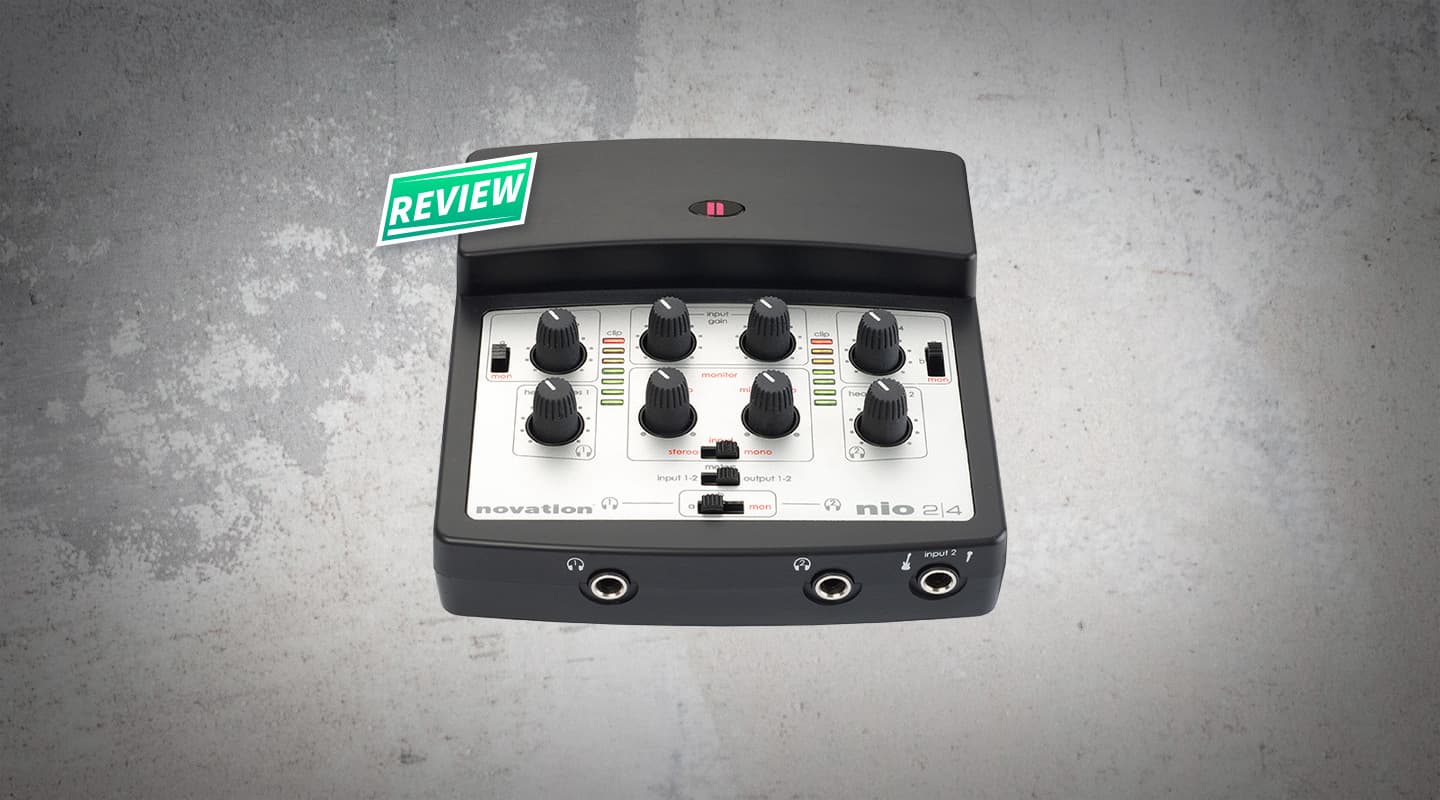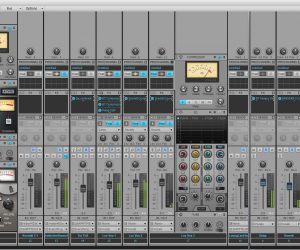
Review: Novation Nio 2/4
A micro bus-powered interface that’ll get guitarists’ juices flowing.
Novation is continually coming up with cool kit. It’s been a hallmark of the company since the QY10 companion keyboard was released in the early ’90s. The Yamaha QY10 was a video cassette-sized scratchpad sequencer and sound module and Novation’s keyboard offered an elegant solution to the QY10’s miniscule makeshift keyboard. The BassStation keyboard hit the shelves shortly afterwards and cashed in on the TB303 frenzy of the day. At the time there was little on the market that could emulate the jaunty single oscillator tones of the TB303, and even fewer synths that would send MIDI controller information for each and every knob.
In an on-going spirit of ingenuity, Novation has released a sweet little USB interface that includes some fabulous effects processors.
COMPA-NIO-N PIECE
I’ll get to the effects shortly, but first let’s go through the physical attributes of the Nio 2/4. It’s certainly portable – about the size of an open palm – and entirely derives its power via the USB 2.0 bus. It’s tiny but solid, and the chunky serrated pads on the underside keep it from slipping around on your desktop. Like most of the current lineup of interfaces there are two headphone outputs with dedicated volume controls for each. The headphone outputs are situated at the front, along with a multi-impedance jack input for guitar, line level or microphone input – a slide switch at the side flicks between the three impedance options. Alongside this switch is another for flipping between mic or line input for the rear XLR mic input, then a further switch for activating phantom power. I’d like to make special mention of the switches – they’re those generic, black, sliding switches with the serrated top (for grip) that you’d find on an old transistor radio. They’re solid, give a very agreeable click when prodded between positions, and look as though they’ll last until kingdom come.
On the rear of the unit are the two RCA line inputs, and four RCA line outputs. Then there’s the XLR mic input, MIDI in and out and the USB connector.
DIRECT APPROACH
The Nio arrives with its own ‘Direct FX’ processing software – the Nio FxRack. When it comes to the big, value-for-money drawcard, this certainly is the clincher. This software is built for low-latency, live jamming and sounds very good. As to the effects on offer I think you’ll be as surprised as I was. To start with, there’s EQ, compression, reverb and gating supplied by none other than Focusrite – who also happens to be Novation’s parent company. The EQ can be set to act as shelving or parametric and is not to be sneezed at. The reverb ain’t to shabby either. Then there’s a group of effects modelled on the SuperNova II effects section. These include your usual time-based effects such as delay, chorus and phasing. Again, they’re fabulous effects – if you’ve ever been near a SuperNova you’ll know the score. Finally, there’s a set of four guitar amp simulators, and a chromatic tuner (that works!). The emulations are courtesy of the Overloud designers and offer a Vox AC30, Marshall JCM900, Fender Twin and a Mesa Boogie rectifier-style amp head. These can all be crunched further with emulations of various distortion pedals such as the Boss DS-1 and Ibanez Tube Screamer. Clearly the guitar wielding home recordist is being targeted with this bunch of effects but I can see many guitarists appreciating the Nio 2/4. I definitely spent a lot of time noodling away with the Nio effects rack.
If all this isn’t enough of a deal clincher for you, I’ve been informed that these effects will soon be able to be used as VST/AU plug-ins when a Nio is recognised on a system. That way you’ll be able to integrate all these virtual racks into your DAW software as well.
I’m well impressed with the Nio 2|4. At $399 the package is worth it for the Focusrite effects and guitar cab simulations alone. For my money, possibly the best bang for your buck I’ve seen all year.

















RESPONSES